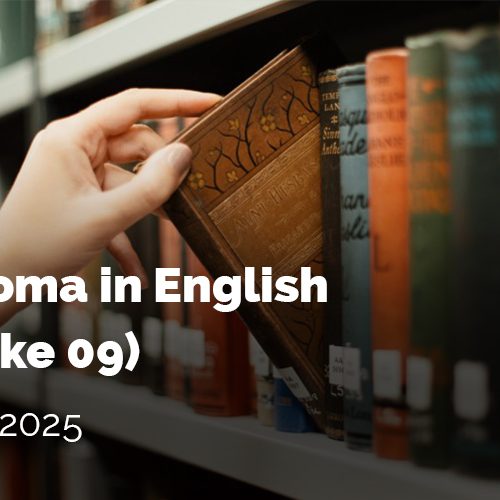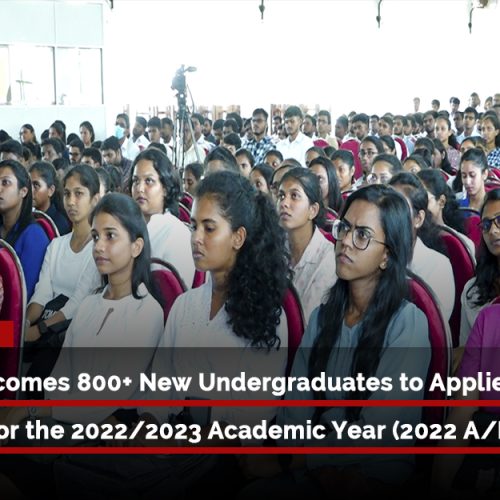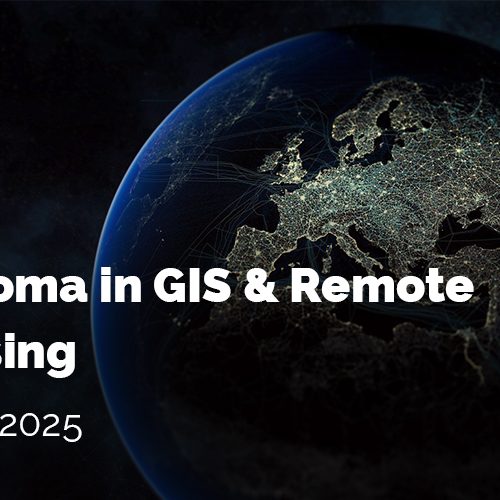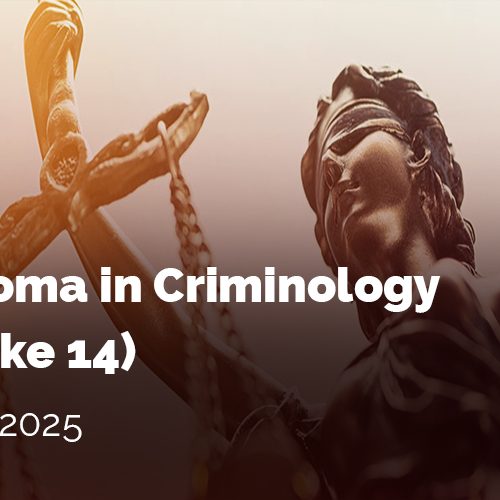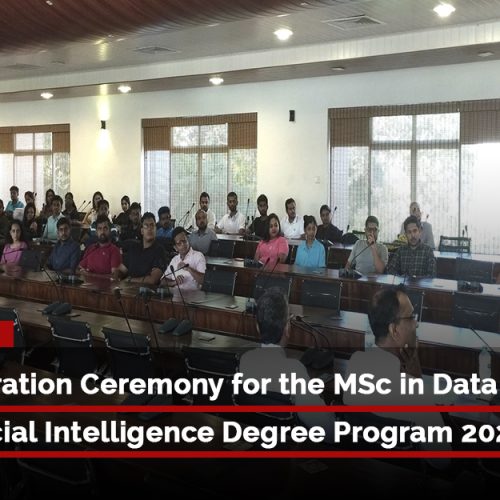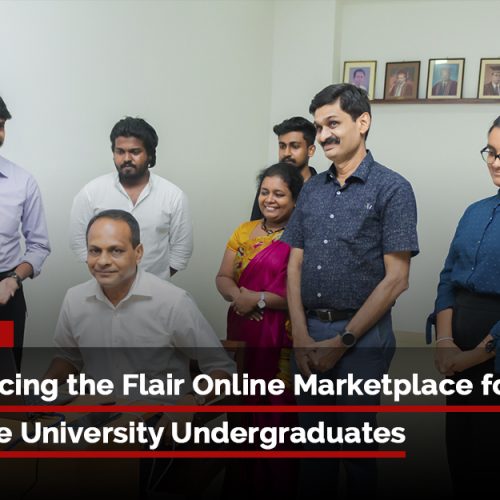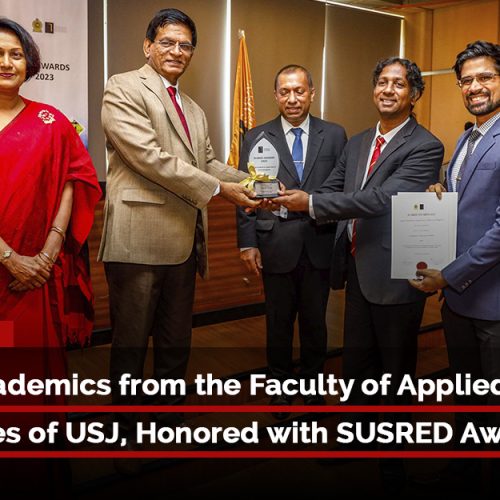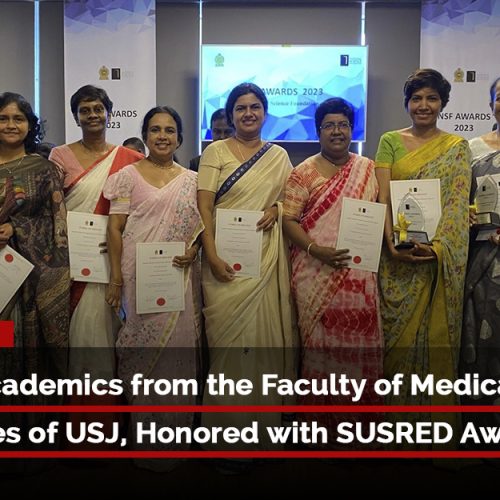Prof. Neelika Malavige and Dr. Chandima Jeewandara from USJ are to launch the Asian and American Center for Arbovirus Research and Enhanced Surveillance program at the Centre for Dengue Research, University of Sri Jayewardenepura
Researchers at the Centre for Dengue Research at the University of Sri Jayewardenepura received funding from the National Institute of Allergy and Infectious Diseases (NIAID), part of the National Institutes of Health (NIH), in the form of a subaward agreement from the University of California, Berkeley. This grant (1U01AI151788) will support the launch of the Asian and American Center for Arbovirus Research and Enhanced Surveillance (A2CARES), headed by Dr. Eva Harris and Dr. Josephina Coloma from University of California, Berkeley, USA. A sum of $1.15-million-dollars over 5 years has been awarded to Prof. Neelika Malavige from the Centre for Dengue Research along with Dr. Chandima Jeewandara. Dr. Ananda Wijewickrama from the National Institute of Infectious Diseases. Dr. Hasitha Tissera from the Epidemiology unit, Ministry of Health and Prof. Thashi Chang from Department of Clinical Medicine, University of Colombo, will also be collaborating on this research program.
This new center is part of the Centers for Research in Emerging Infectious Diseases (CREID), a coordinated network of 10 centers in regions around the globe where emerging and re-emerging infectious disease outbreaks are likely to occur. Within this network, multidisciplinary teams of investigators will conduct pathogen/host surveillance; study pathogen transmission, pathogenesis and immunologic responses in the host; and develop reagents and diagnostic assays for improved detection of important emerging pathogens and their vectors.
A2CARES is be a consortium of world-renowned investigators in arbovirology, epidemiology, immunology, viral diagnostics, phylogenetics, and clinical research in Nicaragua, Ecuador, Sri Lanka, UK, and the US. Its overarching goal is to develop an interconnected network of clinical and laboratory sites to provide the foundation for research programs, compare arboviral diseases across geographic regions, develop and implement cutting-edge molecular and serological testing methods, and respond efficiently and effectively to new disease outbreaks. “This is a very timely network of consortia given what we have all experienced with COVID-19. I think it is evident that it is crucial to have a global surveillance system to detect new and emerging infections. We also don’t have a good idea regarding the burden of arboviral infections such as dengue, Japanese Encephalitis and West Nile virus which have been reported in Sri Lanka,” says Prof. Malavige. Through this research project, we aim to find out the viruses responsible for neurological infections and unusual severe febrile infections in Sri Lanka. In addition, we also plan to compare the complications due to dengue and other arboviral infections in Sri Lanka and Latin America, in order to find long lasting solutions to such vector borne infections.
Research Triangle Institute (RTI), a nonprofit research organization in Raleigh, North Carolina, USA with regional and project offices in over 75 countries, and Duke University, home to the Duke Human Vaccine Institute in Durham, North Carolina, USA, will serve as the CREID Coordination Center (RTI/Duke CC). For more information, visit: https://creid-network.org/ and https://www.a2cares.com/
The consortium leverages research infrastructure and expertise in long-term cohort and hospital-based studies in the three partner countries in Asia and Central and South America. With three decades of collaborative international research and over 200 joint publications, A2CARES investigators have extensive experience in preparing for and responding to outbreaks working closely with local and international health authorities and NIAID.
The COVID-19 pandemic has demonstrated the capacity of novel human pathogens to emerge rapidly and cause widespread epidemics with new, and potentially severe, clinical outcomes. The current pandemic emphasizes the urgent need to put in place flexible and coordinated systems that can quickly respond to the emergence of pathogens and provide high-quality clinical data and specimens for multidisciplinary research efforts. A2CARES and CREID will lower the future global risk from new viruses by creating global capacity to respond to these threats.
Partner institutions and key collaborators in A2CARES include, among others:
- Eva Harris and Josefina Coloma at the University of California, Berkeley, USA
- Aravinda de Silva at the University of North Carolina, Chapel Hill, USA
- Aubree Gordon and Joseph Eisenberg at the University of Michigan, USA
- Leah Katzelnick at the National Institutes of Health, Bethesda, USA
- Jesse Waggonner at Emory University, Atlanta, Georigia, USA
- Neelika Malavige at the Centre for Dengue Research, University of Sri Jayewardenepura, Sri Lanka
- Angel Balmaseda at Sustainable Sciences Institute,Managua, Nicaragua
- David Parajon at AMOS Health and Hope, Managua, Nicaragua
- Gabriel Trueba at San Francisco de Quito University, Ecuador
- Varsovia Cevallos at CIREV, National Health Research Institute INSPI, Ecuador
- Nuno Faria at Imperial College London, Oxford University, United Kingdom
- Shannon Bennett at the California Academy of Sciences, San Francisco, Caliornia, USA
- Ian Lipkin at Columbia University, New York, USA

